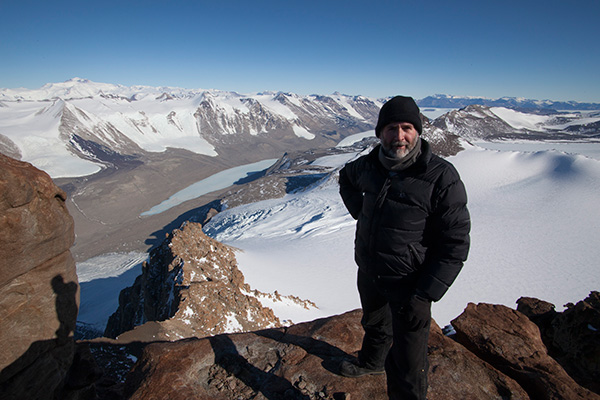Interview: Anthony Powell
Director of Antarctica: A Year on Ice
Yeah I guess my initial drive was just trying to articulate the experience, and I guess I had the “a picture tells a thousand words” cliché in my head. I just found that it was the only way I could properly articulate what I was seeing and the experience. Pretty much everyone I know that has ever gone there has just gone “oh wow, it’ll be a cool place to go and check out.” But once you have actually spent the time there, you actually develop the real appreciation and respect for it and become a little bit territorial and want to look after it and make sure it is preserved. That is sort of what we did in the film as well – we didn’t want it to be a blatant advocacy film, but it just progresses naturally after experiencing it.
At the start of the film you said that you can’t put into words what it is like to live in Antarctica. Do you feel that your film accurately portrayed what you couldn’t with words? Or do you feel you still have to go there to truly understand?
I think that it is the closest you can get without actually being there. That is what a lot of the feedback I have gotten from other people who have spent time on the ice [has been] – it’s basically the next best thing. There is still so much more when you experience anything in person, so you can never capture it 100 per cent, but I think it gives a pretty good sampling.
In the film you not only showed the light, but also the darker aspects of Antarctica and its wildlife. Does it annoy you when you see documentaries that glamorise Antarctica?
A lot of films are trying to sell a happy product. But generally my guiding thoughts were to make it real – if I ever saw something and had a reaction I put it in the film. The penguins, for example, are amazing – you can just sit there and watch them all day – but there is the other side to it as well. Most filmmakers will just sit there and show you the happy penguins, because dead penguins being eaten by birds doesn’t really sell very well.
In the film you touched on, but didn’t put a huge emphasis on, environmentalism – a theme that has become really strongly associated with documentaries about Antarctica. Was that a conscious decision?
Yeah, I wanted it to be there but not in your face. Because I thought that by taking the more subtle approach and only mentioning it a few times here and there, is more common to the actual experience of being there. It’s also probably making the message a lot more acceptable to people who wouldn’t want to go and see some kind of advocacy film.
In the film you show all the different ways people in Antarctica entertain themselves. Do you think Antarctica has given you a new perspective on the function and importance of entertainment?
Yeah definitely, there are no cell phones and limited internet access so you basically go down there with a couple of suitcases and what you bring is what you’ve got. So you really need to create your own entertainment. It forces you to revaluate some things. It’s actually quite rewarding: you suddenly realise when you get back off the ice how much you are being bombarded with consumerism and marketing. I can’t stand to watch TV now because I can’t stand to sit through ads anymore.
What advice would you have for young documentarians?
Just get out there and do it! I had no film school training or anything prior to doing this. I’ve always been a keen photographer and it was pretty much a case of [shooting for] a year before I thought that I was on to something. Then I just kept gathering more and more footage. It wasn’t until the last couple of years that I focused on the more human side by gathering all of the interviews. I put a rough cut together and started showing people, asking was it worthwhile, and when everybody started jumping on board, it was all go from there.







